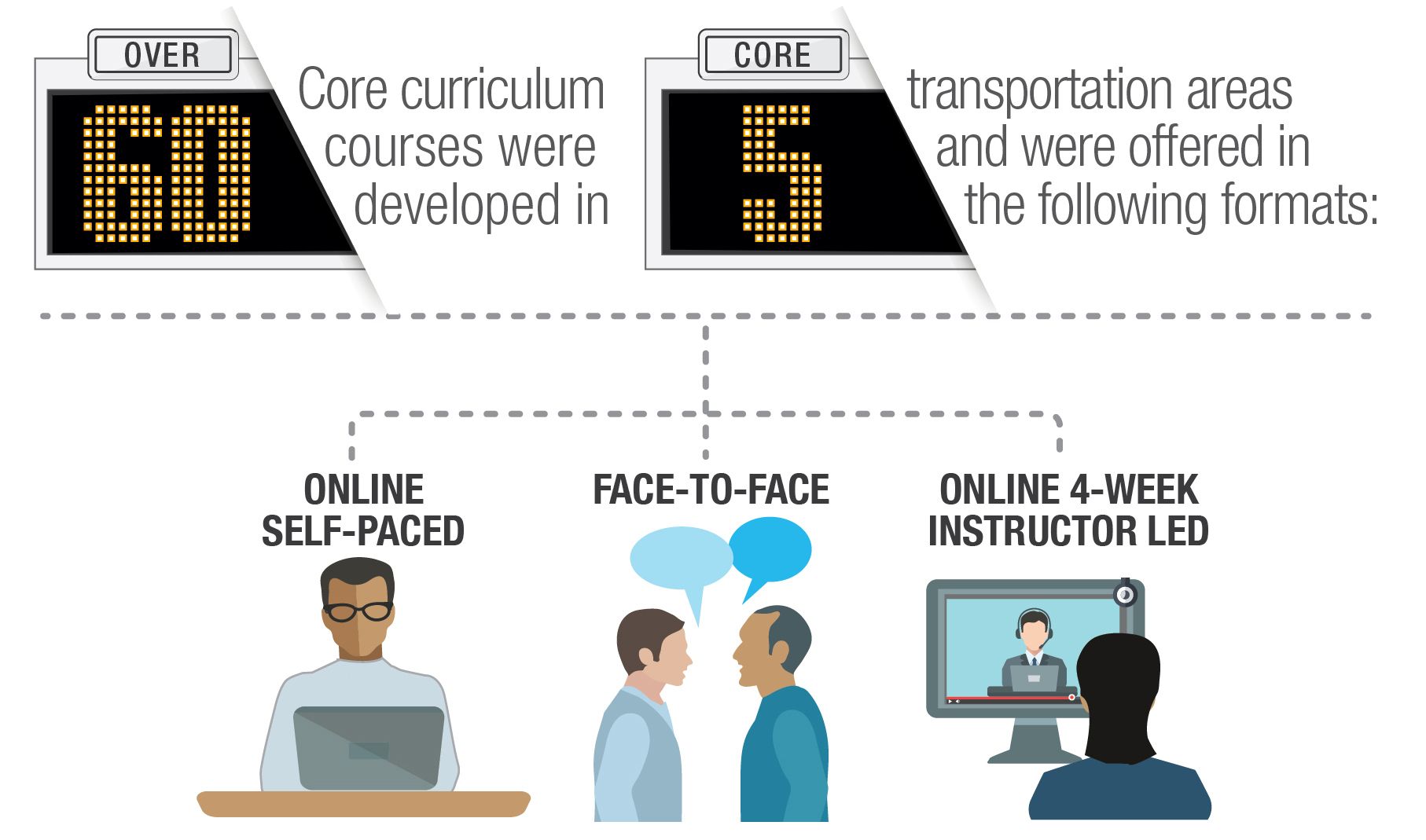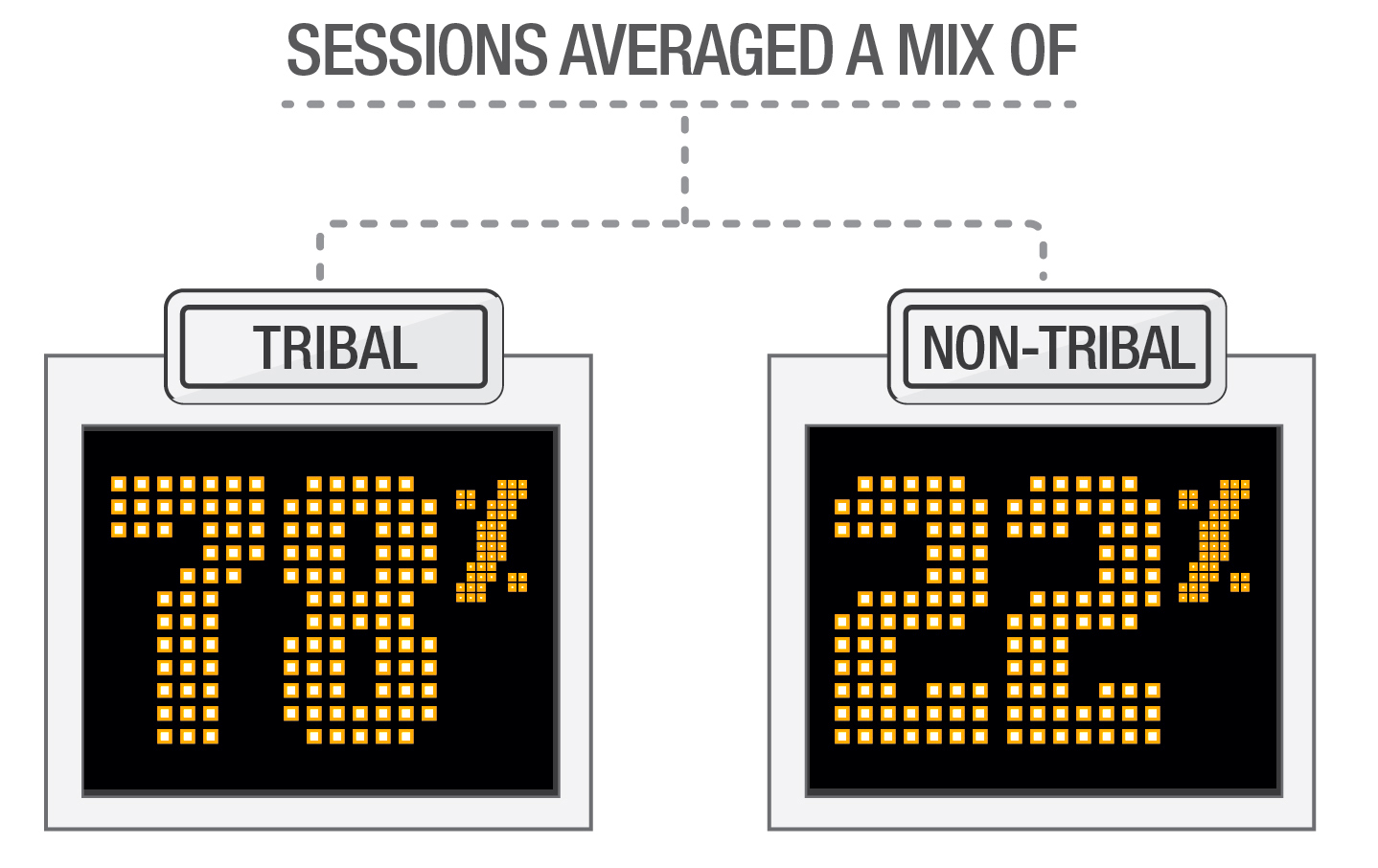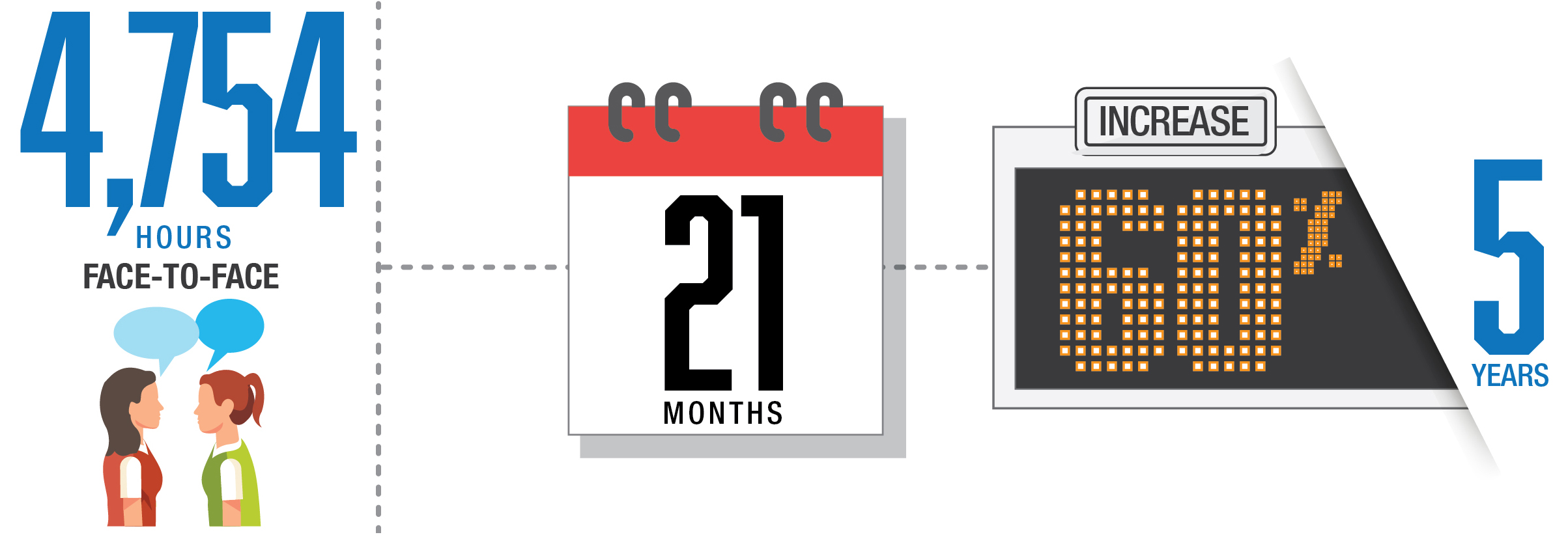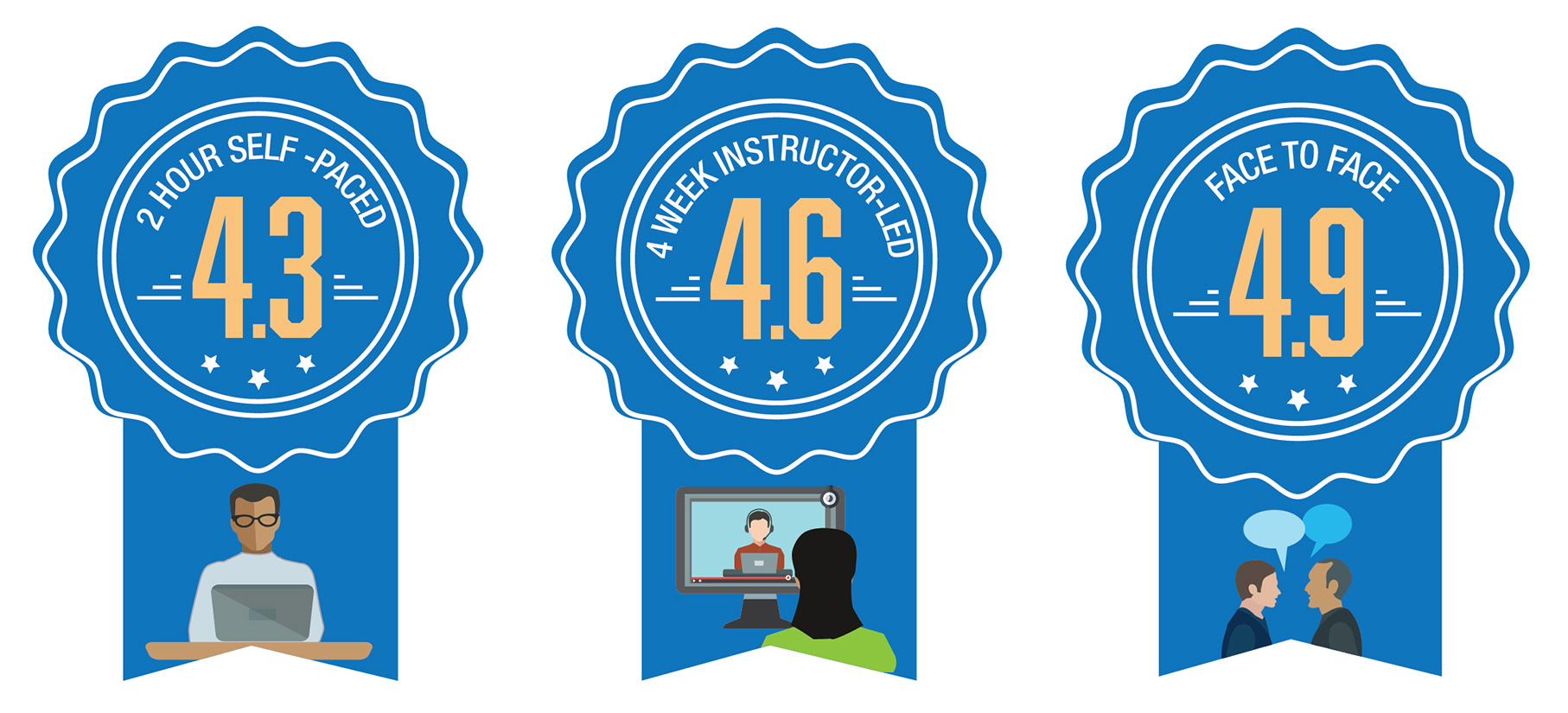FHWA formally launched in March 2018 a national pilot for the services delivered under the Tribal Transportation Assistance Program (TTAP). The national pilot was implemented to assess whether reshaping the program could feasibly increase the amount of transportation training and associated technical assistance available to tribal transportation professionals and provide data to serve as a baseline against which future improvements could be measured. Administered from a central location with the virtual delivery of face-to-face training, the pilot tested a means to provide broader national coverage. The goal was to deliver training in core transportation focus areas, centralize subject matter expertise, ensure consistency in training delivery, share best practices and innovation, enable technical assistance from subject matter experts, test a Road Scholars certification program, and create program awareness with the tribal transportation workforce. The pilot was funded at the same level as previous TTAP efforts.
Based on program analysis, the input gathered from the Tribal Transportation Program Coordinating Committee (TTPCC), and feedback from our engagement with the tribes, FHWA moved forward with piloting a centralized delivery model. The model was implemented to increase the amount and types of education and technical assistance services available to the tribes and support consistent and uniform training and training materials across the twelve BIA regions. It also supplemented face to face training with e-learning options.
Informational webinars on the restructuring of the Tribal Transportation Assistance Program (TTAP) to a centralized delivery model were held in June 2017 to solicit tribal input, opinion, and feedback on a proposed two-year pilot. Each webinar concluded with a unique Q&A session and chat room. A follow-up letter summarizing 'next steps' was sent out to tribal leaders in July 2017.
Tony Furst, FHWA's Chief Innovation Officer, provided remarks on the TTAP restructuring during the plenary session of the National Tribal Transportation Conference.
FHWA awarded the TTAP Center contract to the University of Virginia in Charlottesville, Virginia in December 2017. UVA was the administrative hub for the pilot. UVA managed five Virtual Centers of Excellence (CoE) in: Asset & Data Management, Planning and Program Management, Project Delivery, Safety, Operations & Maintenance (figure 4). The staff supporting these areas of expertise were located across the country and provided face to face training and technical assistance. The new model also tested a national Tribal Roads Scholars Certification Program to provide certification for heavy equipment operation and construction theory topics. The pilot was funded at the same level as previous TTAP efforts.
Webinar, December 6, 2017: PDF | HTML | Transcript | Audio Recording
The new center was operational in March 2018. The following webinar shared the 2018 training program, the technical assistance process and the new TTAP website.
Webinar, March 5 and 15, 2018: PDF | HTML | Audio Recording
From August 2018-May 2019, the Federal Highway Administration held listening sessions to provide a forum to collectively hear from tribes on their experiences using the TTAP service under the Pilot. FHWA also engaged with tribal governments as requested at regional and national meetings for the purpose of exchanging information and input on the action. A brief update on current implementation of the pilot was provided before engaging in dialogue and discussion.
Tribal Listening Session Webinar - August 23, 2018
View the webinar: https://connectdot.connectsolutions.com/pc0xj00iylrg/
NTTC 2018 Listening Session 16 - September 16, 2018
View the webinar: https://connectdot.connectsolutions.com/p1d92qycfjuo/
Throughout the 2-year pilot, FHWA received feedback from the tribes on the model and its performance. In response, FHWA held four consultation sessions in the summer of 2019 to solicit more direct feedback on the national model. Tribal consultation meetings were held in Washington, District of Columbia; San Diego, California; Tulsa, Oklahoma; and Anchorage, Alaska
View the Consultation Presentation. PDF | HTML
View the Tulsa, Oklahoma Transcript. PDF | HTML
View the Reno, Nevada Transcript. PDF | HTML
View the Bloomington, Minnesota Transcript. PDF | HTML
Over 60 core curriculum courses were developed in five core transportation areas and were offered in the following formats: online self-paced, online 4-week instructor led, and face-to-face.

The pilot provided in-depth training on topics and skills with the face-to-face training classes that were 3.5 hours or longer. These courses were offered primarily to tribes, but others could attend on a space-available basis. During the pilot, these sessions averaged a mix of 78 percent tribal and 22 percent non-tribal.

The pilot delivered 4,754 hours of face-to-face training over a 21-month period. Converted to an annual number, this represents a 60 percent increase over the 5-year average annual for face-to-face training hours delivered in the previous 5 years of the TTAP.

Upon request, the TTAP SMEs provided customized technical assistance to help build the technical knowledge and capabilities of tribal work forces. Serving as technical mentors, SMEs provided guidance and resources beyond the classroom. Over the course of the pilot, the SMEs provided an average of 36 technical assistance hours per month to the tribal workforce.

Evaluations (Rating Scale 0-5)
